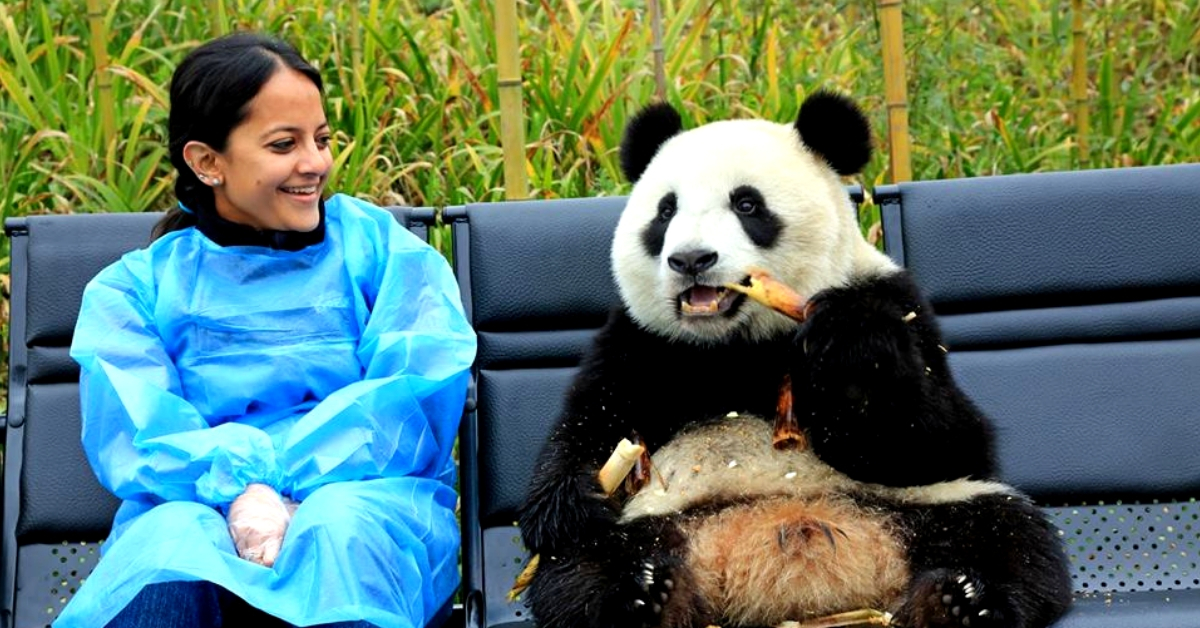


Why we felt she needed to be included in this list: An associate conservation scientist at the Wildlife Conservation Society, Krithi Karanth is a globally renowned wildlife conservationist scientist fighting poachers and deforestation, while leading numerous research projects on how Indian rural villages and wildlife can co-exist.
Born in Mangaluru to a family of wildlife enthusiasts (her father, K. Ullas Karnath, is a noted tiger biologist and conservationist and her grandfather, Shivaram Karnath, was a leading environmentalist), Krithi Karanth grew up learning about forests, animals and the need to conserve these precious resources.
She went on to major in environmental science and geography at the University of Florida and then earned a master’s and a PhD in environmental science from Yale and Duke University, followed by a post-doctorate fellowship at Columbia University.
Shenomics
In the field of wild life conservation things are always sort of posed as ‘people versus nature’ inherently. All of my work has involved addressing questions of people impacting wild life and wildlife impacting people. I think the solutions have to come from looking at both perspectives. In some things we have to put people first, and in some, we’ll have to put wildlife first. There are a lot of grey areas, it’s not a black and white space at all. If we want wildlife in a country like India with 1.2 billion people and less than four per cent land set aside for wildlife, we’ll have to make some tough decisions about how we are going to manage wildlife and ensure people are not harmed. It’s a big challenge that we have.
Her first project was in Bhadra, Karnataka, in 2002 where she studied the voluntary resettlement of people and the livelihood concerns that arose as a result. For over 20 years, she has focused her research in India conducting studies on species distributions and extinctions, the impact of wildlife tourism, the consequences of voluntary resettlement, land-use change and human-wildlife interactions.
One of her greatest milestones has been to tackle the difficult and sticky issues of poaching and forest fires. During her master’s, she was working in the Bhadra Wildlife Sanctuary in Karnataka. She built a massive database, which consisted of work from British naturalists and the records of Indian kings who hunted wildlife. After interviewing wildlife experts from across India, she re-created the data of wild animals that were recorded between 1850s to the early 1900s. Her database consisted of 30,000 locations and located 100 species and has been influential in recording declines of wildlife species over the past 150 years.
She also pioneered the research into wildlife conflicts between animals, farmers and their farmland. Her research revealed that the presence of local wildlife was damaging to the livelihoods of farmers who were often affected after suffering crop losses, livestock and damage to their properties. Revolutionizing the co-existence of wildlife and humans, Karnath and her team developed a process where farmers use a toll-free number to record the details of the wildlife incident and then a field crew is dispatched to the site of the incident.
She is now working on a project called Wildseve which has helped over 7000 families file wildlife compensation claims and receive their benefits. She is also assisting wildlife and conservation filmmaker Shekar Dattatri on the docu-film From Killer Roads to Human Highways, which explores the rapid expansion of roads and highways which threatened the Indian wildlife and the measures that can be implemented to avoid the catastrophe.
Your Story
It brings sanity, it’s not an obsession with a single animal. Just the knowledge that these places exist and knowing that you have seen just a fraction, and that there’s so much to see and discover, brings a sense of peace.
Currently an associate conservation scientist at the Wildlife Conservation Society, a senior fellow at the Centre for Wildlife Studies and an adjunct assistant professor at Duke University, her work has been published in 16 international scientific journals and she has co-edited an issue of Biological Conservation. She has also been published in The Hindu, Times of India, India Express and more than 50 national and international newspapers. Through the years, she has mentored over 100 scientists from India, Australia, the U.K. and the U.S. Karanth was named an INK Fellow and spoke at the INK Conference in 2013. She also spoke at TEDxMAIS in 2013 and TEDxGateway in 2014.
She was honoured as National Geographic Society’s 10,000th grantee in 2011 and was selected as National Geographic Emerging Explorer and one of India’s Power Women by Femina in 2012. She was named in Women of the Year by Elle India in 2013, and this year she received the Woman of the Discovery Award by WINGS Worldquest, an organization that supports and recognizes women scientists.
Thumbnail Image Photo Credit: www.facebook.com/krithikaranth
Main Image Photo Credit: www.thebetterindia.com
© Copyright 2021: Anmeco Optimedia Communications Inc.